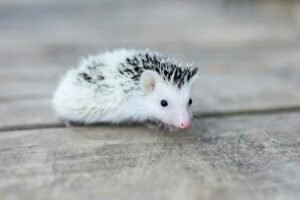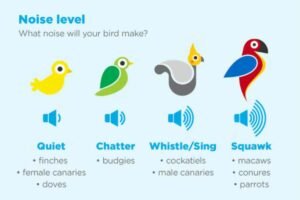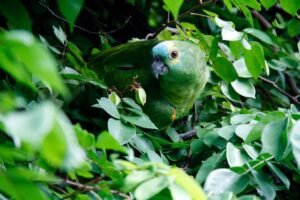Pros and cons of owning a finch as a pet. Finches, also referred to as songbirds, are lively pets highly admired for their unique personality around the globe. These beautiful creatures are inexpensive and self-sufficient, so they don’t require a lot of human interaction. Finches have a wide array of personalities, but these birds don’t like to be handled by humans. The main drawback of owning a finch as a pet is that these birds prefer the company of their own species and thrive in pairs only. Plus, it is pretty hard to tame them completely. Larger finches can even display aggressive tendencies. So if you are looking for a cuddly or friendly natured pet, a finch may not be the best choice for you.
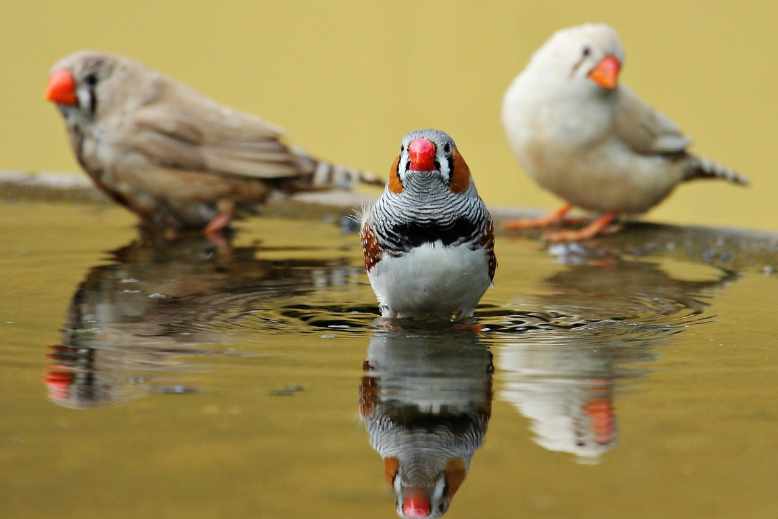
One of the most important aspects of choosing a finch is understanding what the bird can offer you and your family and the things about the pet that might be challenging to handle. No doubt finches are a delight to have, but just like any other pet, choosing a finch has its own set of advantages and disadvantages.
Pros and Cons of Owning a Finch as a Pet: Pros
- Enjoyable to watch
One of the peak benefits of keeping a pet finch is that these birdies are entertaining to watch. Finches are attractive, small birds that will prefer spending much of their time resting and flashing in their cage. While these lovely creatures are not noisy birds, they will hum and chirp, especially when approached by their caregivers. Their fascinating, active character and a wide array of personalities make them a popular choice for folks who love exotic pets.
- No need for constant attention
Another edge is that finches do not require tons of human interaction. While these little birdies are friendly, they do not need constant care. Over-occupied individuals (working from 9-5) who want a companion but might not have time for a high-maintenance pet like a pooch might take pleasure in owning a pet finch. Provided that these birds have snacks, fresh water, and a hygienic environment, they will have the ability to entertain themselves.
- Breeding
Besides singing, chirping, and fitting in their cage, finches often mate and breed there. Watching these independent animals mate and grow from scratch is a truly unique experience. Nonetheless, there is some responsibility on the owner’s part as well to ensure the breeding goes well. For example, the owners are responsible for providing the nest or the necessary elements of the nest for the mother. Finches also need a lot of light while breeding. Provide these necessaries to observe your pet finch raising a nest full of babies.
- Great apartment companions
Since finches do not require a great deal of attention and are smaller in size, they make excellent apartment companions. Their cage needs are minimal, and as long as these avian friends are in pairs, they will thrive. Plus they aren’t very noisy.
- Low-maintenance, high availability
What makes finches genuinely remarkable is their low-maintenance nature and ease of availability. They are pretty inexpensive, and avian admirers can easily find them in many pet stores. The enclosures and accessories, including the water bowl and other toys, are a significant part of your outlay while looking for finches. They are affordable to care for, and their owners can easily find the necessary items like food, filter water, enclosure decorations, and toys at very reasonable prices.
Their basic needs include a hygienic environment, access to clean water, and fresh food. That’s all your little birdie needs to entertain himself!
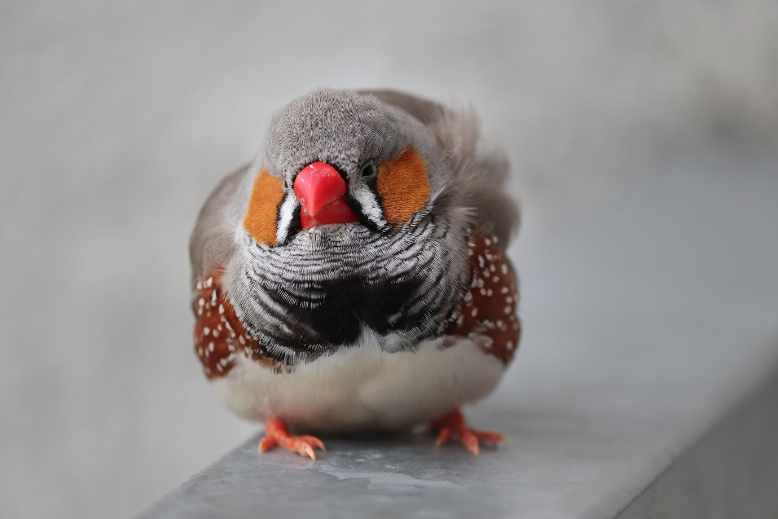
- Independent in nature
Finches are self-reliant, which means they will not become tame. While this situation can be ideal for busy people unable to make time for a demanding pet, some pet owners find it a con. It is crucial to understand that finches don’t appreciate being held by their owners, and neither can we expect them to be overly affectionate and snugly. The little birdie will greet his favourite people with sweet vocalizations, but the greeting does not involve physical affection. You may need to reconsider your decision of getting a finch if you are looking for a friend you can pet or play with.
- The more, the better!
These songsters have sociable personalities. Thereby, to gratify this need, owners will have to keep them in pairs of at least two or larger groups if possible. This is a disadvantage if you only wish to have a single bird pet. If you believe you are not ready to care for two or more birdies, considering other species that can live alone is a smart option.
Pros and cons of owning a finch as a pet: Cons
- Aggression
Though finches aren’t aggressive birds, sometimes they can show aggression. In a sizable aviary where individuals can locate personal space and getaway to the far edges of the cage, you have a better possibility of getting the balance right, even with a varying flock of feathered friends. However, you will need to have some extra ‘calming down’ cages for aggressors (or their targets) in smaller-sized setups. Some finches are pretty jarring, and many others become assertive when hormones flare in the breeding season. It is also possible for a finch to become aggressive if there isn’t enough food.
- Territorial
Some cock finches become over-zealous in defending their nests while the hen is incubating the eggs. Given enough space, other finches will soon learn to keep away. In a smaller cage, this is an untenable situation and is one of the reasons why finches are better in breeding pairs.
- Need big spaces
Finches are very active and enjoy flying around, so whether you choose a cage or an aviary, try to make it as big as possible. The minimum size should be 24 inches by 16 inches by 16 inches. Though they would enjoy even more room, the cage should be short and wide rather than tall and thin.
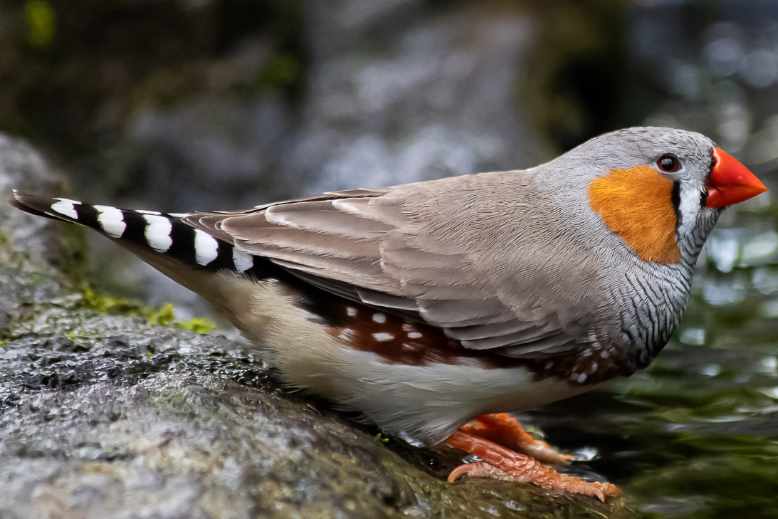
- They dislike being handled.
Finches are chatterboxes, but they don’t like intermingling with humans. Unlike some birds craving human attention and love, they don’t desire human attention, neither do they wish to spend any time with their caregivers. Though they don’t bite, they absolutely dislike being handled by their human parents and prefer sticking around their cage mates.
- Can’t be tamed
Finches can almost never be tamed and handled. Trying to handle an adult finch will greatly stress it, and the little birdie may die. Finches that are hand raised from an egg may become tame.
- Prone to stress
Finches are very prone to stress, and sometimes small things, such as another pet in the room, may stress them out and make them sick and die.
- They are messy!
Finches aren’t good rulers. In fact, they are pretty messy! When they eat, the seed husks and tiny pieces of food fall into the floor, so you’ll need to discover the appropriate location for the cage, which will facilitate cleaning. Cleaning the cage of your finches can be a real job since they’re generally not happy with the disturbance of the habitat. Some people have two cages so that they can clean out the cage thoroughly with minimal disruption. Open both cage doors and help your finches move from one to another. Put fresh fruit or their favourite toys from the 2nd cage, and they’ll go with minimal fuss. Just reverse when you are done cleaning the main enclosure.
- They can be noisy
While a finch is nowhere near as loud as other parrot species, this tiny feathered creature has quite a pair of lungs and can be very noisy all on its own while chatting or singing. They are rarely silent, but you can calm them down quickly. Just cover their cage just like you do at night for some quiet time.
Pros and cons of owning a finch as a pet: Related questions
- Are finches friendly?
Finches are docile and friendly but enjoy being in the company of their mates. They can lighten up the mood in your house with their gentle chirps and chatter. However, they don’t crave attention or seem to form any natural bond with humans.
- Are finches good pets?
Finches are a popular variety of pet birds. They are friendly, energetic, relatively easy to care for, and small enough that they won’t take up much room in your house or apartment. However, Finches are mainly hands-off pet birds that enjoy being with their kind. They make social interactions with other flock mates and pleasant sounds, making them popular as companion pets. They are highly available and are low on maintenance.
- Is it necessary to keep my pet finch in a pair?
If you’re planning to adopt a finch, you’ll need to obtain at least two. Finches thrive in pairs or groups, so if you’re an experienced pet owner and have a cage large enough to house half a dozen of finches, you can bring home as many of the birds as you feel comfortable caring for.
· Finches are highly social animals and will not do well if kept alone.
· You can keep finches of the same sex together, or you can mix up the genders. Be aware that they may breed if you get both male and female finches. Have a plan in place in case they produce babies.
- With an aviary or a large cage, you can keep them in groups of more than six.
- These social birds don’t strongly bond with humans and don’t appreciate handling. With consistent training, you may be able to get them to sit on your hand.
- Are finches loud?
Finches are ideal for people who don’t want loud birds. These are tiny birds, and such are their voices. They make peeps and pleasant chirps throughout the day, and a flock of finches together make relatively less noise. Finches will flit around their cage and put on appealing displays of flashy flying. Although their chirps and twittering are relatively quiet, they can be chatty at times, which many bird owners find attractive.
- Are finches messy?
Finches enjoy flying around and are super active. You may want to choose a large cage or an aviary if you get more than two pairs of them, as they tend to be messy due to their constant movement. They are not good housekeepers as when they eat, the seed shells and small pieces of food will fall to the ground, making a complete mess.
- How long do finches live?
Finches have an average lifespan of around 4 to 12 years. Nonetheless, you can expect a finch to thrive up to 20 in captivity. It is because captive finches do not encounter the stress and threats faced by finches flying around in the wild. Thereby if you can provide suitable living conditions, adequate health care, and proper nutrition, we can significantly amplify the possibility of their survival.
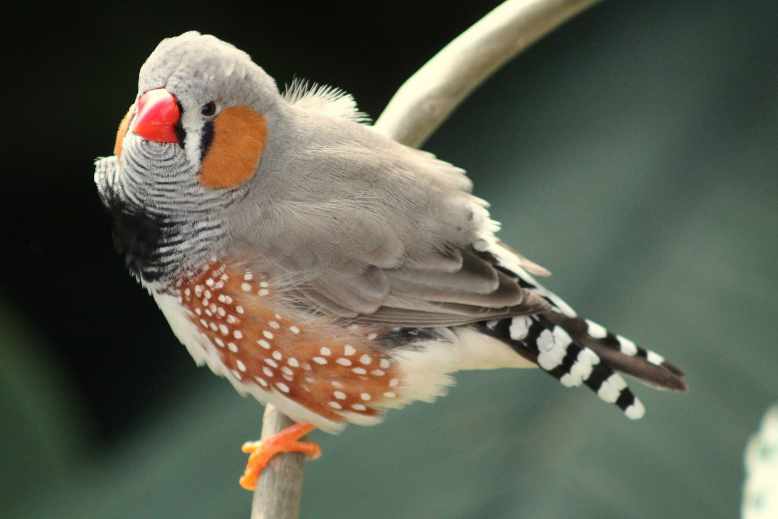
- Do finches recognize their owners?
Yes. Finches can easily recognize their owners. Like humans, finches can recognize faces and distinguish the vocals of their cage mates and people living in the house. Although they dislike being handled, they instantly identify and respond to their owner’s calls with chirps, tweets, and peeps.
- Can a pet finch be cuddly?
A finch most likely will not be a cuddly companion (although some hand-raised finches, especially zebra finches, have been known to perch on a finger) like a parrot.
Wrapping Up
The decision to have a pet in the home is a serious one. Even a small one like a Finch can mean extra work, but it’s not that bad once you have a system. Once you have researched and know what is required to raise a happy, healthy pet Finch, you will be ready to enjoy the pleasant company of one of nature’s little wonders. Being greeted by your pet each morning will come to be the highlight of your day. Just remember that Finches don’t require much human interaction, and they are inexpensive to buy and affordable to maintain. These social birds cannot live alone and need to be paired. They have a dynamic and interesting nature, making finches a popular choice for pet birds.

